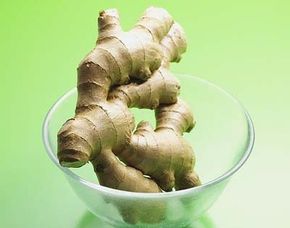
Your voice makes you sound more like a frog croaking than a human talking. Chances are, you can figure out the cause -- whether it was all the yelling you did at last night's hockey game or that cold you've had for the past couple of days.
Don't confuse laryngitis with a sore throat, though. True laryngitis is the loss of the voice or hoarseness, and it's the result of inflammation (swelling) of the larynx, or voice box, and the voice folds. The most common cause of temporary laryngitis is an upper respiratory infection such as the common cold, which is caused by a virus. If the infection is bacterial, you may need to see a doctor to get antibiotic treatment.
Advertisement
The second most common cause of laryngitis is voice abuse or overuse -- such as yelling at that hockey game -- which can leave you hoarse.
The symptoms of acute, or short-term, laryngitis can include pain in the throat or around the larynx, hoarseness, raspiness, the loss of range (noticed especially by singers), tiring easily, and a scratchy feeling in the throat. Constantly clearing your throat can be another symptom.
If you suffer from chronic laryngitis, smoking may be the culprit. Inhaling tobacco smoke increases the mass of the larynx, lowering the pitch of the voice.
One surprising cause of laryngitis is gastroesophageal reflux disease (GERD). That's a long name for what a lot of us think of as heartburn, except that only about half of GERD sufferers actually feel any pain or burning in their chests. A GERD sufferer who feels no chest discomfort is unlikely to be aware that the acid-rich contents of their stomach are coming back up in their throat, especially during the night.
Laryngitis caused by GERD (which is very common among the elderly) can make you feel like you have something stuck in your windpipe. People often mistake it for the mucus of postnasal drip. Symptoms are worse in the morning: You may wake up with a bad taste in your mouth, do a lot of throat clearing, and have hoarseness that gets better as the day goes on. If you suspect GERD is causing your laryngitis, see your doctor.
Laryngitis is usually a temporary inconvenience without serious consequences. But sometimes persistent hoarseness or voice loss is your body's way of telling you something is wrong. You should also see a doctor:
- If pain is present
- If the hoarseness continues for more than 72 hours
- If you've got an upper respiratory infection with a fever that lasts more than a couple days
- If you have any trouble breathing
- If you notice a permanent change in the pitch of your voice, especially if you are a smoker
- If you cough up blood
The problem may be as minor as a bacterial infection that needs antibiotics. You could have polyps or nodules on your vocal folds that cause them to vibrate more slowly, changing the sound of your voice. Or you could have cancer of the larynx, which can be treated with radiation if caught early.
In most cases, laryngitis will recede with rest. If you're experiencing laryngitis, read the next page to find home remedies to soothe your voice while you recuperate.
This information is solely for informational purposes. IT IS NOT INTENDED TO PROVIDE MEDICAL ADVICE. Neither the Editors of Consumer Guide (R), Publications International, Ltd., the author nor publisher take responsibility for any possible consequences from any treatment, procedure, exercise, dietary modification, action or application of medication which results from reading or following the information contained in this information. The publication of this information does not constitute the practice of medicine, and this information does not replace the advice of your physician or other health care provider. Before undertaking any course of treatment, the reader must seek the advice of their physician or other health care provider.
Advertisement

